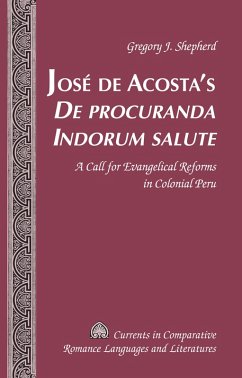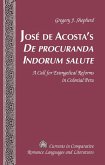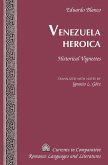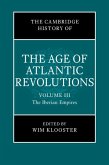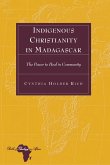Dieser Download kann aus rechtlichen Gründen nur mit Rechnungsadresse in A, B, BG, CY, CZ, D, DK, EW, E, FIN, F, GR, HR, H, IRL, I, LT, L, LR, M, NL, PL, P, R, S, SLO, SK ausgeliefert werden.
Thanks to Gregory Shepherd, we now have at hand a comprehensive study of 'De procuranda Indorum salute', Acosta's principal guide for missionaries in Latin America. Shepherd lays out the historical context for understanding 'De procuranda Indorum salute' and analyzes the key themes and sources that inspired the Jesuit author.
Acosta's most important contribution to mission practice was his call for missionaries to treat the Indians as human beings. According to Acosta, the worst enemies of evangelization were the evangelizers themselves: their avarice and greed contradicted their own message. In this sense, Acosta was both a humanist and a realist.
Shepherd's study of 'De procuranda Indorum salute' is a guide to understanding not just Acosta but Jesuit spirituality of the period. This exhaustive guide will open up many doors to understanding the intellectual forces which competed for the attention of sixteenth-century missionaries and which drove the entire evangelization process in Latin America.» (Jeffrey Klaiber, S.J., Professor of History, Pontifical Catholic University of Peru)

